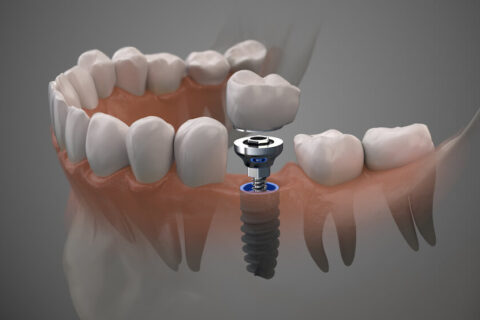The Dangers of Letting Gum Disease Go Unchecked
Gum disease may refer to one of two conditions: gingivitis and periodontitis. Since these two dental conditions are linked, it helps to think of them as a spectrum rather than two separate conditions, with gingivitis being on the less severe side. The progression of gum disease may depend on your habits, commitment to dental hygiene, and a number of other related factors. Continue reading if you would like to learn about the dangers of letting gum disease go unchecked.
Inadequate Dental Hygiene
Proper dental hygiene includes brushing your teeth twice per day with your favorite fluoride toothpaste, flossing once each day, and visiting your dentist regularly. Failing to
practice these habits can allow the bacteria and acids that rest on your teeth to eat away at enamel and build up in the form of plaque. When this plaque is left untreated, it will continue to build and harden into tartar, which can only be removed by your Denver area dentist. Plaque and tartar will cover your teeth and work their way under your gums, which typically leads to sensitivity and inflammation of the gums. These symptoms characterize gingivitis, which can ultimately progress into the more dangerous periodontitis.
Gingivitis
Gum disease starts with inadequate dental hygiene, but it can end there too if you catch it quickly. The development of gingivitis often includes sensitive gums that may bleed when you brush your teeth. It is important to keep in mind that refraining from brushing your teeth will only make this problem worse. Instead of avoiding dental hygiene because of gum sensitivity, look for a softer toothbrush and be extra careful while brushing. If you ignore the problem, your gingivitis will likely develop into periodontitis in no time.
Periodontitis
While gum disease is characterized by sensitive or bleeding gums, periodontitis builds on these problems and causes trouble for your roots. As your gums attempt to move away from the bacteria, plaque, and tartar, they recede from your teeth and expose your roots. This supports infections that can ultimately damage your soft tissue and lead to tooth loss.


